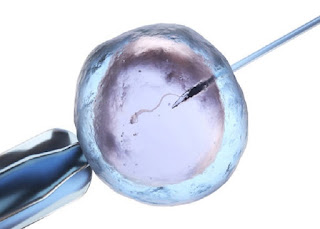Elective Egg Freezing: 4 Things to Know
Egg freezing has been getting quite a bit of press lately. Chances are, you’ve heard about celebrities are coming out about their decision to freeze their eggs and clinics near you holding “Egg Freezing Parties.” The reason? Between increased awareness and the ever growing number of large companies offering egg freezing as part of their benefits package, more women than ever before are choosing to preserve their future fertility by freezing their eggs now.
But deciding whether or not to freeze your eggs is a deeply personal decision – one that should be made only after informing yourself of all the facts. Here, the fertility experts of SIRM Dallas fertility center in Texas go over what you need to know before deciding whether or not to freeze your eggs.
1. Why Would a Woman Choose to Freeze Her Eggs?
There are a variety of reasons women choose to freeze their eggs. For some, medical issues that can cause infertility (such as an autoimmune disorder or cancer diagnosis) lead them to consider the procedure.
But for many other women, egg freezing is done for personal reasons. Whether it’s because they want to put off parenthood until they’re more secure in their careers or because they haven’t found the right partner yet, many women are choosing to freeze their eggs because the time just isn’t right. For these women, the decision helps them preserve their future fertility (female fertility begins to decline around age 35) for when the time is right.
2. What’s the Best Age to Freeze Your Eggs?
A female fetus has about 6 million eggs. By the time she is born, she will have lost about half of those, and will only have around 200,000-400,000 by puberty. A woman will continue to lose eggs every month – nothing can stop a woman losing eggs (no, not even the pill). Moreover, the quality of eggs declines over time as well. Because of this decrease in quantity and quality, egg freezing is considered to be most effect when done before a woman turns 38.
But these are just averages and every woman is unique. If you really want to have a good idea if or when to freeze your eggs, you should consider first getting a fertility awareness checkup so that you know where your fertility stands in relation to other women your age.
3. Is Freezing Your Eggs Safe?
Yes! The ovarian stimulation and egg retrieval processes are very safe when conducted by an experienced fertility specialist. Additionally, freezing your eggs has no negative effect on your future fertility and your eggs can be safely vitrified and stored for when you need them.
4. What Does the Egg Freezing Process Look Like?
The first step is to schedule a consultation with Dr. Walid Saleh, our fertility specialist. During the consultation, he and his care team will take a full medical history, conduct a physical, and run some tests to make sure you are a good candidate for the procedure. If you are, the team will come up with a protocol tailored to your situation, starting with a round of hormone injections to stimulate your ovaries to create multiple eggs. Then, at the right time, the mature eggs will be retrieved using a minimally invasive outpatient procedure and your eggs will be cryopreserved and stored. When you’re ready, your eggs can be thawed, fertilized, and the resulting embryo transferred to your uterus.
Making the decision to freeze your eggs is not one that should be taken lightly. Make sure to inform yourself and gather all of the information you can. If you want to learn more about elective egg freezing or would like to schedule a consultation, contact us today at 972-566-6686.




Comments
Post a Comment